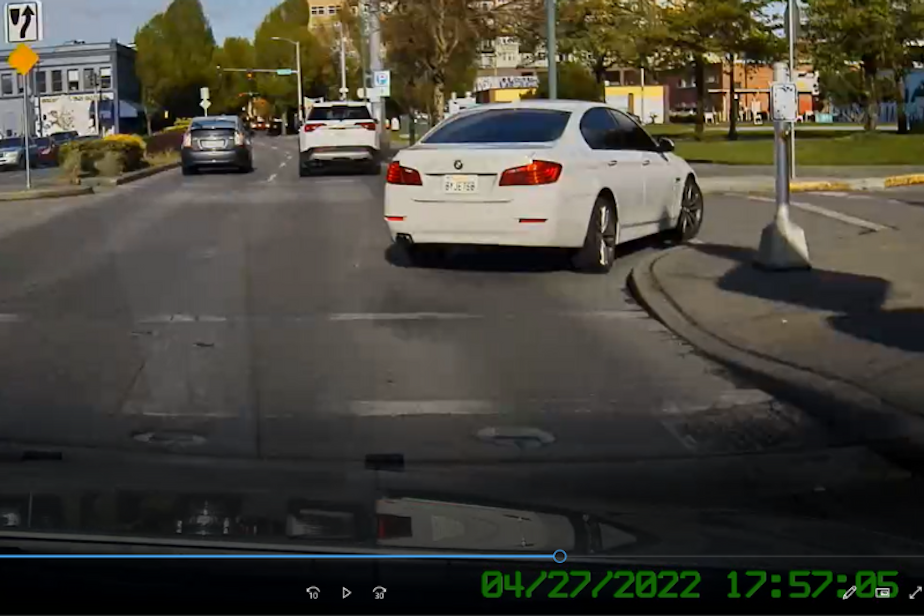One WA police chief's argument for changing state vehicle pursuits law

Since 2021, Washington's police departments have had strict rules around when they can, and cannot, chase after suspects in cars. The police pursuit policy has become a hot topic in Olympia and state lawmakers are debating a change that would loosen these restrictions.
"I think the law and the legislators need to realize that there needs to be flexibility and decision-making capabilities at the local level for law enforcement to serve their communities as best as possible," Fife Police Chief Pete Fisher told KUOW's Angela King. "The state's responsibility is to set a framework through which local jurisdictions can work."
Current law requires that officers have reasonable suspicion to pursue someone they believe may be driving under the influence, or probable cause to pursue someone who might have committed a violent or sexual crime. The thinking behind the current law was that police chases are dangerous, even for bystanders.
Opponents argue that it has led to fewer people stopping for police because they know they can get away. A compromise bill recently passed out of the state Senate that would allow pursuits in more situations.
For Chief Fisher, this issue is complicated. Fife already required these high standards, even before the 2021 law was passed. That's because Fife is a fairly small town with high traffic, a potentially dangerous combination in the event of a high-speed police chase.
Yet Chief Fisher doesn’t think the current limits should be for every police agency. He argues that the rules are too stringent and need to be scaled back. Fisher says the changes lawmakers are currently debating would move the law in a "positive direction," though they are relatively small adjustments.
Sponsored
"The changes are not because police chiefs and sheriffs want to see more pursuits," he says. "We think it will have a little bit of a chilling effect on those people that are choosing to run now, that didn't do so before the legislative changes ... It's a matter of making good decisions to have quality law enforcement that has a level of accountability."
Not everyone agrees.
Some Republicans rejected the bill to amend current law because it would still prohibit pursuits related to stolen vehicles. And there were Democrats who voted "no" because they say law enforcement should use other means besides high-speed chases to stop people who are committing crimes.
Sen. John Lovick, a Democrat, recently defended the proposed changes.
"I know there are fears out there, but I think legislation like this can bring our community together and help our law enforcement professionals do the job that they are hired and that they are trained to do," he argued, speaking about the compromise bill that recently passed out of the state Senate.
EDITOR'S NOTE: This story has been updated to more accurately reflect the requirements of the state's police pursuit policy. The original article said "probable cause" is required for officers to engage in vehicle pursuits. The current law actually has a lower bar for pursuit when it comes to driving under the influence, when "reasonable suspicion" is required.





